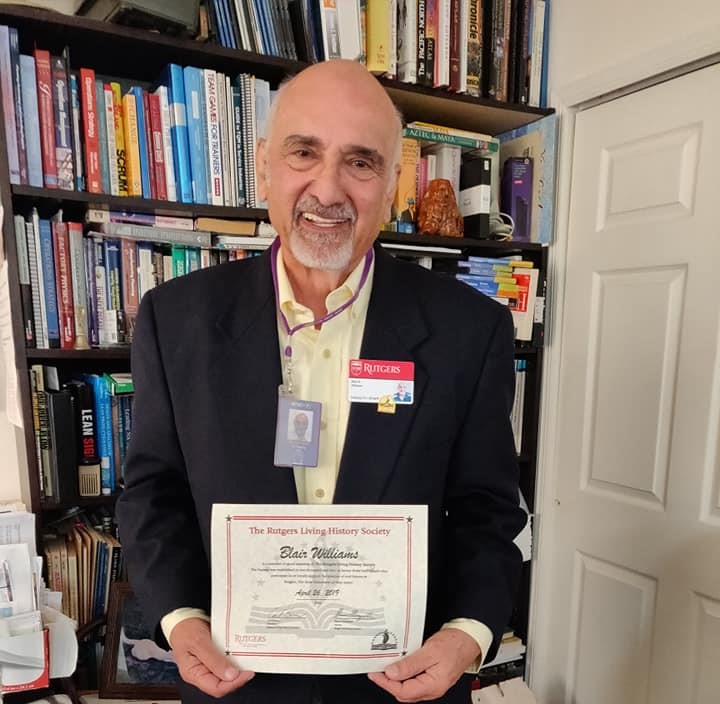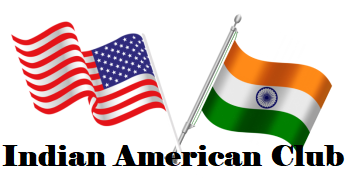
As a young child Blair remembers his burly grandfather Alfred Williams who was in the British Army before coming to India in 1907. He served as a police officer, eventually retiring as a Sergeant from Madras Police. His grandmother who was Indian was a nurse by profession. His Anglo Indian ancestry gave him special privileges in British India and he remembers being addressed as “Chota Sahib” a term generally reserved for the ruling class in India during the British Raj.
His father Clarence Robert Williams was a wireless operator in Post and Telegraph and his mother Gwen Williams was a teacher. Being Anglo-Indian, English was his mother tongue and his family associated mainly with other Anglo-Indians. Although he was born in Madras (Chennai), he traveled all over the country because of his father’s constant job transfers.
He was sent to the prestigious boarding school St. Josephs in Bangalore in 1947. After three years in St. Joseph’s, Blair went to Montfort Boarding School in Yercaud, Tamilnadu. Both schools had every modern facility one could think of from swimming pools to large playgrounds, and many extra-curricular activities that gave students excellent public speaking skills, and leadership opportunities. In the both schools the medium of instruction and all communication were in English. Blair’s ability to read, write and speak the English language provided a strong foundation that served him well throughout his life, both in India and subsequently in the USA.
Blair moved to Poona to complete his Higher Cambridge Certificate and grew from a skinny 5 foot 2 to almost 6 feet tall. College was fun just like it is today. In 1955, he met his wife Ellen in Poona and got married in Calcutta in 1961.
Not knowing how to proceed with his career he took the advice of a friend and appeared for the Indian Railways Services of Mechanical Engineers (IRSME) competitive exams. He was among the 10 students who were selected from a nationwide pool of 10,000 applicants. . He went to Jamalpur Railway Engineering College in 1957 and completed his degree in Mechanical Engineering from London in 1961. He had a successful career in the Railways and in 1971 he was appointed as the Deputy Director of the Railway Board and posted in Calcutta (Kolkata).
Meeting brilliant minds from all over the country was an eye opener for Blair. He is thankful because in Jamalpur he “learned about India” and went “from having an Anglo Indian point of view to having an Indian view” and “that really saved me in terms of the kind of person I grew to be.” The students he met in Jamalpur continue to be his best friends even today.
Despite his successful career in the Railways Blair’s drive to become financially independent made him restless. He applied to the USA for immigration and because of his engineering degree was granted a special immigration status and a green card in India. He went to the USA in 1975 and worked as a supervisor in Pullman, building Amtrak Railcars. After working with them for 5 years he joined AT&T and became a well respected expert in Materials Management. He rose to Director of Materials and Manufacturing Engineering with AT&T. During this time he published a technical book “Manufacturing for Survival”, which continues to sell to date.
He was elected and served as a Councilman in Scotch Plains, New Jersey from 1995 to 1997.
In 2000 he started teaching at NYU as an Industry Professor. By 2003 he was appointed as the Head of the Department due to his innovative teaching methods, and management skills.
Seeing the plight of Anglo Indians in India during his 1998 visit to Kolkata, Blair in his usual dynamic manner sprang into action. It was time to give back. He established a tax exempt non-profit in US and began connecting Anglo Indians worldwide to this cause. He authored and published books and articles on the culture and way of life of the Anglo-Indian community (as it was soon to be extinct). In 2010, with the sponsorship of the University of Calcutta, an exclusive section of the library was set up on the history of Anglo Indians.
Today, Blair continues to administer the charity (Calcutta Tiljallah Relief) which provides monthly pensions to 350+ seniors across 5 cities and helps educate 250+ poor children. His management skills, expertise, and leadership skills have allowed many less fortunate seniors and children to lead a better quality of life. He is grateful to have this opportunity to make a difference.

